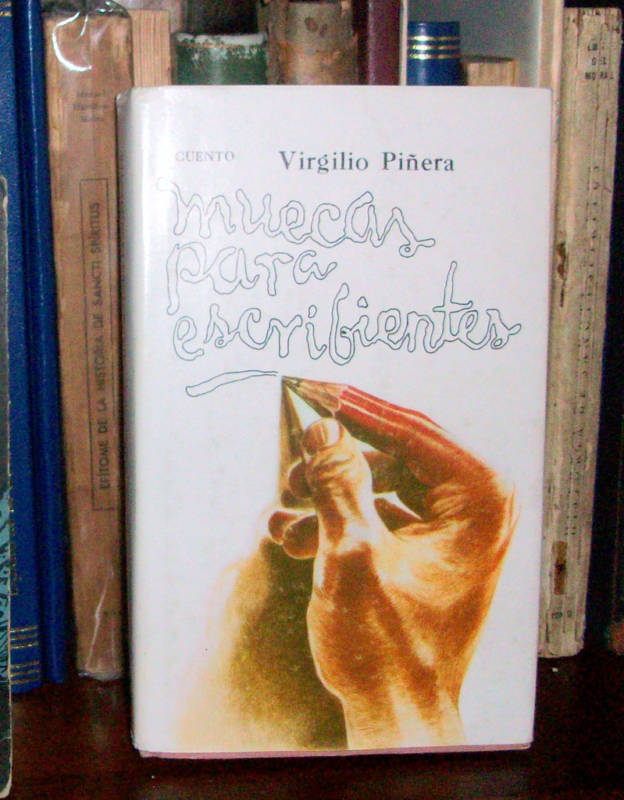4.1.2.3.11 “Grimfaces for Writers”, 1987, by Virgilio Piñera (1912 – 1979)

“Muecas para escribantes” (Muecas para escribantes) is a collection of short stories by Virgilio Piñera that was published posthumously in 1987, along with “Un fogonazo” (A Flash). The text brings together a diverse selection of pieces from a period of nearly 30 years of creative writing, between 1947 and 1975; although Piñera is known for his habit of playing with time and not dating his works with great precision.
The central theme of the text is the dilemma of the exercise of writing, the attraction and repulsion that the blank page, the silent call of the typewriter, and above all, the absence of inspiration simultaneously provoke in the writer, in a certain way also how the writer tries to avoid the call of literature, which he conceives as destiny and sometimes damnation.
The text is composed of several pieces that have no a priori connection other than that they somehow address the literary fact itself, as is clear from the title itself. The stories that appear here are titled “A Jesuit of Literature,” “Council and Discourse,” “The Baldomero Case,” “Grimfaces for Scribes,” and “Hossana! Hossana…?” (the last two composed of several sub-narratives), many of which are so extensive that they can be considered short novels.
The first one that appears in the book –although not chronologically since it has not been given that order- “A Jesuit of Literature”, is where the psychological complexities of the writing process are fundamentally reflected, through the writer’s ramblings that are physical but also on a mental level, concomitant with self-analysis but with a strong undertone of parody.
The religious theme emerges here with a certain acidity in the dialogues, reflecting the writer’s own oscillation between atheism and religiosity, although he consciously opted for the former.
The book may have lacked a definitive revision due to the author’s death, but it constitutes a fitting culmination of his career, in terms of the treatment of the themes, the mastery of writing procedures and the effective expression of his personal universe, of a surprising singularity even though it can be associated with literary schools and movements of one era or another.








